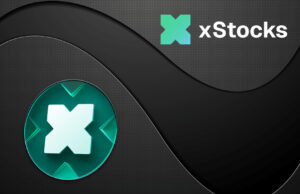Why Banks Must Embrace Blockchain to Combat DeFi Disruption

Ghanaian Banks Urged to Embrace blockchain Technology to Stay Competitive
The Call for blockchain Integration
In a recent discussion, technologist and business leader Sammy Crabbe emphasized the urgent need for traditional banks in Ghana to adopt blockchain technology. He warned that failure to do so could lead to their obsolescence in the face of rising decentralized finance (DeFi) platforms.
- The Call for blockchain Integration
- Advantages of Decentralized Finance
- Bridging the Gap with blockchain
- The Impact of Technological Disruption
- The Growth of DeFi Platforms
- A Hybrid Financial Future
- Strategies for Integration
- Regulatory Sandboxes and Innovation
- Varied Responses from the Banking Sector
- Global Trends in Banking Evolution
- The Bank of Ghana’s Initiatives
- Challenges to Implementation
- Optimism for blockchain Integration
- The Future of Traditional Financial Institutions
Advantages of Decentralized Finance
Mr. Crabbe highlighted that DeFi offers services that are not only faster and more cost-effective but also more transparent compared to conventional banking. However, he pointed out that established financial institutions still hold significant advantages in areas such as trust, regulatory compliance, and customer loyalty, which they can leverage for future success.
Bridging the Gap with blockchain
To remain relevant, Crabbe suggested that Ghanaian banks could integrate blockchain into their backend operations, focusing on areas like settlement processes, identity verification, and compliance reporting. He noted that several financial institutions in developed countries have already begun to offer services related to cryptocurrency custody and blockchain-based asset trading.
The Impact of Technological Disruption
The Ghanaian financial sector is currently under pressure from technological advancements, with mobile money transactions surpassing GH¢3 trillion in 2023—a 57% increase from the previous year, according to data from the Bank of Ghana. In April 2025 alone, mobile transactions reached GH¢365 billion, while traditional banking services struggle to keep pace with the convenience offered by digital alternatives.
The Growth of DeFi Platforms
Globally, DeFi platforms have experienced remarkable growth, with the total value locked (TVL) reaching over US$138 billion in 2024. Although this figure has decreased from previous highs, it still indicates a significant shift away from traditional financial services. The technology allows for financial transactions to occur without the need for traditional intermediaries, which can lower costs and enhance transaction speed.
A Hybrid Financial Future
Rather than viewing blockchain as a threat, Crabbe urged Ghanaian banks to position themselves at the forefront of a hybrid financial landscape that merges decentralized tools with regulated services. He believes that banks that adapt to these changes will not only survive but thrive by integrating the best aspects of both worlds.
Strategies for Integration
Crabbe outlined several strategies for local banks to consider, including forming partnerships with fintech startups to develop blockchain-enabled loan platforms and digital savings products. He also pointed to the regulatory sandboxes established by the Bank of Ghana as a valuable resource for testing innovative products in a controlled environment.
Regulatory Sandboxes and Innovation
The regulatory sandbox initiative, launched by the Bank of Ghana in 2020, allows financial institutions to experiment with new products while maintaining regulatory oversight. However, uptake has been limited compared to similar initiatives in countries like Kenya and Nigeria.
Varied Responses from the Banking Sector
Ghana’s banking sector, which includes both local and foreign institutions, has shown mixed reactions to digital innovation. While many banks have introduced mobile banking services, the integration of blockchain technology remains in its infancy. As of December 2023, the sector comprised 23 universal banks with total assets amounting to GH¢274 billion, but profit margins have been squeezed due to government debt restructuring and increased competition from digital financial services.
Global Trends in Banking Evolution
Crabbe’s recommendations align with global banking trends, as seen in countries like Switzerland, where major banks have incorporated cryptocurrency services, and Singapore, where DBS Bank has launched a comprehensive digital exchange for institutional clients.
The Bank of Ghana’s Initiatives
The Bank of Ghana has expressed its willingness to embrace blockchain innovation, having initiated a pilot program for a central bank digital currency in 2022. The eCedi project aims to enhance existing payment systems and lay the groundwork for broader digital finance advancements. Additionally, the regulator plans to begin overseeing cryptocurrency platforms and virtual asset providers in Ghana by the end of September 2025.
Challenges to Implementation
Despite these initiatives, significant challenges remain for local financial institutions, including a lack of technical expertise, regulatory ambiguity, and infrastructure limitations that could hinder blockchain adoption. Crabbe noted that the regulatory sandbox approach allows for gradual integration rather than disruptive changes.
Optimism for blockchain Integration
Industry experts have expressed cautious optimism regarding the potential for blockchain integration, acknowledging that while the technology offers clear advantages, successful implementation will require substantial investments in both technology and human resources.
The Future of Traditional Financial Institutions
The banking sector’s response to blockchain technology could be pivotal for the overall development of Ghana’s fintech landscape. Mobile money services, led by companies like MTN and Vodafone, have shown a strong consumer demand for digital financial solutions, presenting both opportunities and competitive challenges for traditional banks. Crabbe concluded by stating that financial institutions have a crucial opportunity not just to survive in the era of decentralized finance but to evolve and lead the market.







